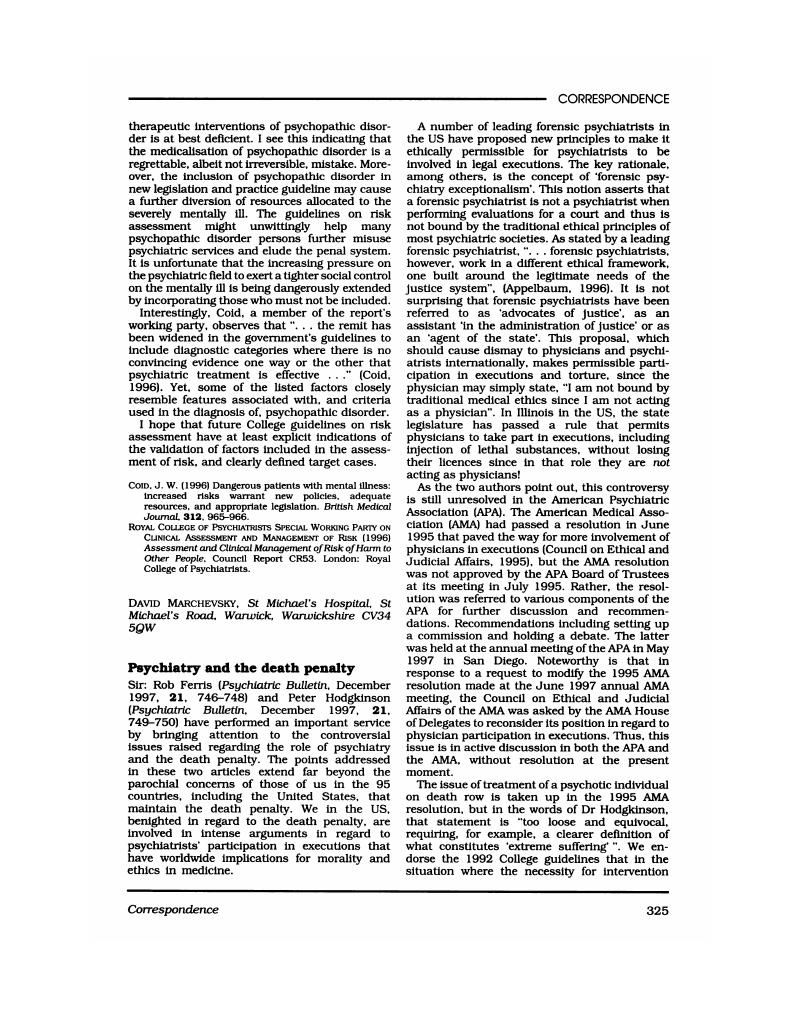No CrossRef data available.
Article contents
Psychiatry and the death penalty
Published online by Cambridge University Press: 02 January 2018
Abstract
An abstract is not available for this content so a preview has been provided. As you have access to this content, a full PDF is available via the ‘Save PDF’ action button.

- Type
- Correspondence
- Information
- Creative Commons
- This is an Open Access article, distributed under the terms of the Creative Commons Attribution (CC-BY) license (http://creativecommons.org/licenses/by/4.0/), which permits unrestricted re-use, distribution, and reproduction in any medium, provided the original work is properly cited.
- Copyright
- Copyright © 1998 The Royal College of Psychiatrists
References
Appelbaum, P. S. (1996) A Theory of Ethics for Forensic Psychiatry, Presidential address in Abstract of the 27th Annual Meeting of the American Academy of Psychiatry and the Law.
Bloomfield, CT: APPL.Google Scholar
Council on Ethical and Judicial Affairs (CEJA), (1995) AMA: Physician Participation in Capital Punishment: Evaluation of Prisoner Competence to be Executed; Treatment to Restore Competence to be Executed. CEJA Report 6-A-95.
Chicago, IL: AMA.Google Scholar
Freedman, A. M. & Halpern, A. L. (1998) A crisis in the ethical and moral behavior of psychiatrists. Current Opinion in Psychiatry, 11, 1–2.CrossRefGoogle Scholar



eLetters
No eLetters have been published for this article.